
Vincent O’Sullivan with Philip Mann at the site of the military internment camp outside Featherston, photographed by Robert Cross during rehearsals for Shuriken in August 1983.
Sarah Therese we call you,
A name that is only yours-
Although ‘only yours’ is the gift
of that small pause
In time when we and you
Are as close as this,
To say your name, to say
“She comes, our girl, she goes.”
Yet we have been together.
Known each other’s touch.
We know to speak of little
Or of much
Are not the words to use
For what you give.
With love you came, our Sarah.
Now go with love.
Vincent O’Sullivan
Selected by Dominic O’Sullivan and the family. Dominic writes, “As far as I am aware, this untitled poem is unpublished. It is inscribed on the headstone of my daughter Sarah at Newstead in Hamilton. She died at birth in 2006. Vince read the poem at her funeral.”


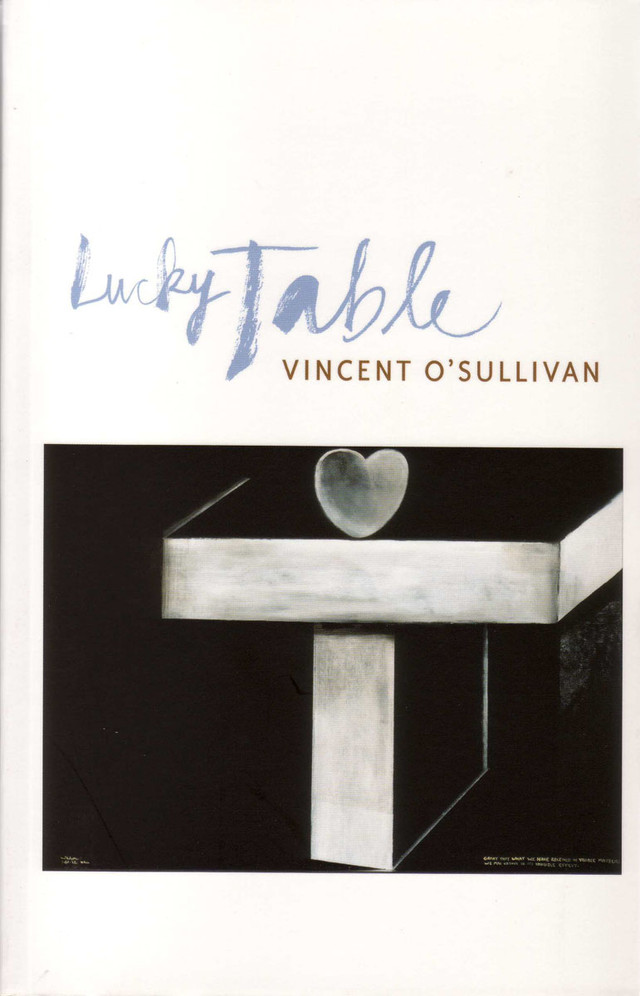

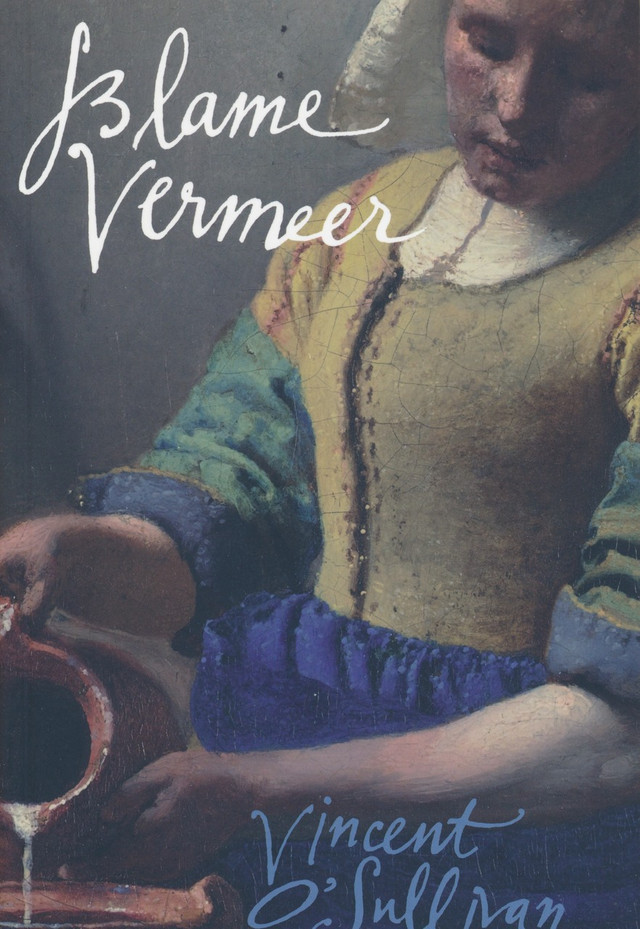
Launch Still Is of at National Library of New Zealand, Wellington, June 21
Born in Auckland in 1937, Vincent O’Sullivan was one of New Zealand’s leading writers, acclaimed for his poetry, plays, short stories, and novels, which include Let the River Stand, Believers to the Bright Coast, and the Ockham-shortlisted All This By Chance. He was joint editor with Margaret Scott of the internationally acclaimed five-volume Letters of Katherine Mansfield, edited a number of major anthologies, and was the author of widely praised biographies of John Mulgan and Ralph Hotere. He taught at Waikato University and Te Herenga Waka—Victoria University of Wellington, and was the New Zealand Poet Laureate for 2013–2015. In 2000, Vincent was made a Distinguished Companion of the New Zealand Order of Merit, and in 2021 he was redesignated as a Knight Companion of the New Zealand Order of Merit. He died in April 2024.
Te Herenga Waka University Press page
To clear a string of days, to put cello or piano or violin on the turntable, to gather Vincent O’Sullivan’s poetry collections from my shelves, is to embark on an autumn vacation, to savour the views, to let poetry simmer and sing as I read. Lines and phrases, images and circumstances, stall me. I am charting my own reading pathways, predilections, gathering touchstones that resonate. On a different occasion, I might savour the presence of story, the characters, so often unnamed, the girl boy woman man goddess god, but in this sweet autumn sojourn, I am entranced by a weave of ‘being’. Perhaps it is arcing back to the 1970s and reading Be Here Now, and then returning, again and again, to the miracle of now, to the joy of looking and pausing. I am remembering Vincent’s collected poems published in 2015, is entitled Being Here.
Reading the poetry of Vincent O’Sullivan, I am pausing and I am looking.
‘Still at your window,’ they say, ‘can’t
you give it a rest?’ Not on your life, tell them,
not on your earthly.
from ‘Still waiting are we?’
in Nice Morning for it Adam, Te Herenga Waka University Press, 2004
Across all the collections, Vincent’s writing encourages us to slow down and absorb a moment, an object, a setting, a gesture, and to let that shimmer and settle within and beyond the frame. The titles so often underline the tiny tremors, the unfixed, the degree of surprise, the arrival of anchor. I could use the word philosophical to signpost the strands of thinking. An early collection, Bearings (Oxford University Press, 1973), foreshadows a future of pathfinding, of residing and expanding ‘the spaces we have no words for’. And yes, so exquisitely yes, poetry that is finding the words to silhouette and map such spaces.
An acknowledgement of the ephemeral enlivening the physical is a steady refrain, as Vincent keeps returning to ‘this and this, nothing is quite lost’. The world, large and miniature, is still this. It is garden, weather, birds, nature, orchards. It is picking the succulent apricot and sharing with a beloved. It is relishing both fruit and single moment.
Vincent’s acute awareness of the indeterminacy of writing, of how poetry is this, and this, and this, heightens the delight of reading his work. It sitting under a tree by the museum, or on an evening with friends, musing on the thought that ‘something will happen after every poem for a long / time yet’. It is ‘the colour of going’ and ‘how things are’.
As often as a vein ticks, the commodious
promise between each tick, the fat stars
dangle their colossal order, the heart swirls
its small time pander
that Now adds up: for longer than the mind
knows its trawl can manage, to something out there
with design that takes us in, in language’s
jigging bucket hoisted
into light.
from ‘as is, is’
in Lucky Table, Te Herenga Waka University Press, 2001
So often Vincent invites us into exquisite poetry clearings, whether as reader, friend, loved one, drawing us into his conversations, his reckonings, his thinking, his concern. Listen to some of his titles: ‘All right then, are we?’, Things OK with you?, Seeing You Asked. There are multiple ways to find our bearings in the scope and depth of his work: multiple vantage points, elevations and uplifts, arrivals and returns, ways back into a luminous moment. I am imagining one of Vincent’s utterly precious poetry books in your hands, as you set sail reading, in awe and in love with what words can do. Looking, listening, pausing.
Not much, but can do better
Every day the century failed
a boy woke and knew beyond all
doubting, there were fish in a river
only he had wind of.
Each morning statistics piled
in their parody of a baker’s
window, a girl knew for certain
there was a horse
she’d ride before the day was out.
There were rooms all over
where good things were said, excellence
achieved , even on evenings
when the sentences were passed
and the magazines loaded.
In the palest edging of dawn
ribbons billowed out
as a child dreams them
and hands moved across each other
as surely as ice cracked outside.
These are things slipped
into books, uneventful
scraps—a leaf from a tree,
a stalk from an August
paddock, a brittle violet.
But show them to someone, say,
in a hundred years, the book
freakishly opened as it’s never been,
you’ll hear the afternoon lean
across a forest, smell harvest
as high as your chest, almost feel
the fingers brushing along the page.
‘This is the story, isn’t it,
in a book, making it seem
all right?’ But so it was, that
day, that afternoon. So it was,
before tomorrow.
from ‘Not much, but do better‘
in Blame Vermeer, Te Herenga Waka University Press, 2007
I invited a group of Vincent’s friends to select a poem of his they loved, and to include a few comments on why they are drawn to the poem. I am grateful to Fergus Barrowman and Bill Manhire for help in creating this tribute, and to those who have participated. My thoughts are with friends, family and fellow poets. Thank you. I offer you this gathering, a slow weekend gathering, so that you too may pause and listen.

Photo by Grant Maiden, 2017
A suite of poems by Vincent O’Sullivan
The thinker in the greenhouse
Philosophy has so helped me over the years.
The kind where the words fight the things the things
insist they are. There is little I am not receptive
to, once ‘receptive’ is defined. How
can one not accept the demand to be exact?
I change flowerpots about in the small conservatory
my wife speaks of as though Kew isn’t in the running.
She tells me the pretty yellow speckled pillows
are calceolaria. She advises never to question
the Latin of those with green fingers, the quality
of garlic depends on its grower speaking French.
In the light of the conservatory we seem to touch
more often. We are less likely to regret.
As though a boy, my popping the fuchsia buds
to a little war of their own. True gardeners
deplore, quite rightly, this inventing allegory
as fun. Nature intends. There are no limits to pleasure.
My wife instructs, too, certain plants that sting
one has no right to speak of unless one has been stung.
In late afternoon, there is something cloistered to a greenhouse.
There is the faintest chanting one all but hears.
Something is winging through. You are part of the wing.
Vincent O’Sullivan
from Things OK with you?, Te Herenga Waka University Press, 2021
Lynley Edmeades: Many of Vincent’s poems hold the sound of his voice, and I can hear him speaking this poem as I read it as if we’re having a cup of tea together. The slightly syncopated rhythm; the Irish lilt in the use of ‘so’ in the opening line that sings the songs of his ancestors; the immense skill he had of bringing the existential into the quotidien. And always, that incredible way that Vincent had of reminding us, with such grace, that for all our egos and posturing, we are not the world, but part of it: “There is the faintest chanting one all but hears./ Something is winging through. You are part of the wing.”
Morning
This morning I have shifted two goats
tangled under a feijoa,
given them a bank half blackberry,
half rusty clover-like weed
they prefer to ignore,
I have given them pretty much
what life does.
Then I look at my birch
whose almost falling leaves
are curled, as though matches
were held near them
until green shrank brown.
There is mist along the river,
the three cats loll after feeding,
the mown grass sticks to my shoes,
brings the morning inside.
That is all my morning comes to,
April morning, autumn—
goats
on a lush bank, three cats
indulged, wet lawn, a birch
ready to lose its leaves,
let leaves drop, dry leaves.
Birch showing through
like a woman, a word
that matters, a guitar string
streaming white
against the morning.
Morning.
Vincent O’Sullivan
from Bearings, Oxford University Press, 1973, and in Being Here: Selected Poems, Te Herenga Waka University Press, 2015
Anna Jackson: In the end, I couldn’t go past ‘Morning,’ the first poem in Being Here, Vincent O’Sullivan’s Selected Poems. It is a poem that lingers on the details of a day, as if a little puzzled at its own lingering, when the morning has after all amounted to nothing more than this – moving the goats, indulging the cats, looking – and then looking again – at the birch leaves. In a later poem, ‘The Monastic Life,’ a man is obsessed by elephants – seeing one elephant starts him off on a quest to see more, every new elephant only fuelling the desire for a greater understanding, the particularity of the individual only taking him further and further from the elephant as concept. It ends with the wonderful line about the elephant as a theology that sways. I love that line! But while the man in ‘The Monastic Life’ insisted that only the grandeur of the elephant was worthy of his attention, a Vincent O’Sullivan poem can make anything shine – this too is a very moving kind of theology.
The child in the gardens: winter
How sudden, this entering the fallen
gardens for the first time, to feel the blisters
of the world’s father, as his own hand
does. It is everything dying at once,
the slimed pond and the riffling of leaves,
shoes drenched across sapless stalks.
It is what you will read a thousand times.
You will come to think, who has not stood
there, holding that large hand, not said
Can’t we go back? I don’t like this place.
Your voice sounds like someone else’s. You
rub a sleeve against your cheek, you want
him to laugh, to say, ‘The early stars can’t hurt
us, they are further than trains we hear
on the clearest of nights.’ We are in a story
called Father, We Must Get Out.
Leaves scritch at the red walls,
a stone lady lies near the pond, eating
dirty grass. It is too sudden, this
walking into time for its first lesson,
its brown wind, its scummed nasty
paths. You know how lovely yellow
is your favourite colour, the kitchen at home.
You touch the big gates as you leave,
the trees stand on their bones, the shoulders
on the vandaled statue are huge cold
eggs. Nothing there wants to move.
You touch the gates and tell them, We
are not coming back to this place. Are We, Dad?
Vincent O’Sullivan
from Nice morning for it, Adam, Te Herenga Waka University Press, 2004
Bill Manhire: ‘The Child in the Gardens: Winter’ does exactly what Emily Dickinson once mentioned as proof that poetry is present: it makes your whole body feel so cold that no fire can ever warm you. For me it’s the voice of the child at the end – that sudden, trusting, troubled question: ‘Are we, Dad?’ – that’s truly devastating. Here’s the instructive note Vincent wrote about the poem for the 2002 edition of Best New Zealand Poems: “So many poems and stories are about being tossed out of the garden (usually Eden) that I was interested in one where people actually wanted to leave. And instead of it being a good place to be (the beginning of all) it was rather a grim place, a place where things ended. Perhaps the son and the father might be taken in different ways, but I didn’t want them to be at odds as they are in the Eden story, but close and trusting before and after they pass the gates. A dead myth is good to leave behind; and winter of course is where so many myths die – at least for a while.”
Listen to Vincent reading the poem on The Poetry Archive.
Right on
A dead overturned beetle can look as if
it’s feeling in several fob-pockets at once,
checking the beetle version of time
when the ticking stopped on cue.
A dead beetle looks as though
there’s nothing left to do, supposing
it stayed alive. Dead and complete.
While the squashed face of a bog-man
like a school satchel run over and over
never looks, does it, as though that’s it,
as though this is exactly what Ending
had in mind? Even untainted saints
in their glass pods outsmarting
conclusion are ‘sleeping’, as we say, that’s
as far as words take us, this time
round.
A trite thought on a sunny
morning, the tiny carapace rainbowing
as your finger flips it over.
It was alright being a beetle, the sun
says off the still bright back, there was
nothing round here not actually done.
Vincent OSullivan
from Lucky Table, Te Herenga Waka University Press, 2001, originally published in I’ll Tell You this Much, Pemmican Press, 2000
Chris Price: A poem about the big things – time, mortality – wrapped up in close attention to the extraordinary nature of a small creature that’s often overlooked, or considered (if it’s considered at all) as insignificant. The poet reminding himself, perhaps, with that capacious brain of his, full of the sardonic laughter and restless intellection found throughout his work, that this beetle is the real deal – when all’s said and done, a beetle, or (as in other poems) an apple or an apricot, is the self-sufficient and untainted thing, its being its own reason for being. Its life and death taking the whole over-complicated human enterprise down a peg or two: a classic O’Sullivan manoeuvre.
Check-out
The librarian I was brought up to admire, ‘sir’
I called him as I did no one else, he called me
‘sir’ back, looking across his half-moon glasses
with what people liked to call ‘the innocence
of a lamb’. (It is always good if the best read
man you can think of goes a beat behind
ourselves in worldly cunning.) He was known
for mild jokes and good humour, for a certain
staleness if you stood too close, for turning
up appropriate verse at a moment’s notice
for the unexpected wedding or passing on.
He said, the one time we spoke as two adults,
‘I have been reading for a lifetime in the hunt
for evidence that humans are less than vile, that good
persists.’ He looked at me as when he called me ‘sir’.
‘I should have closed the first book and collected stamps.’
Vincent O’Sullivan
from Further Convictions Pending, Te Herenga Waka University Press, 2009
Michael Hulse: Vincent possessed the ability to sink a sudden plumbline down through the everyday into horror. This unprepossessing poem appears to be talking casually about the transition from childhood to adulthood, about social attitudes and stereotyping, and above all about one man everyone imagined they knew. All of this is deftly in the poem, but in a devastating moment of openness the librarian reveals himself to be intimate with evil, despairing of ever finding evidence that humanity has a better side, fearing that his life’s pursuit has been without meaning. I imagine his words finding their place in Vincent’s notebook, Vincent knowing that they raised the hairs on the back of the neck as surely as anything in Housman or Sebald. Knowing what to do with a donnée, how to throw it into relief, is a crucial skill in anyone who works with words. In the case of one as well-travelled as Vincent in the dark as well as bright places of heart and mind, poems such as ‘Check-out’ act as a penumbra, the necessary shadow-realm against which the fine celebratory poems such as ‘Still waiting, are we?’ or ‘Being here’ can be understood as full joyful daylight.
Michael Hulse is an English poet and translator with long-standing ties to New Zealand writers

8
On the day my father died a flame-tree
with its stiff immaculate flares cupped over
the leafless branches outside the hospital window
said for us several things voice could not get round to,
yet not only and not foremost the riding of life
above the stark branches nor the perfect Fin
once the work is done, as though time’s shining
is when the match is struck and is over, so.
It spoke, each opening red fist only feet from dying,
of small errors, of mornings forgotten by afternoon,
of words taken or words put down lightly
as a glass, or laid like a single log on a fire,
or touched as the head of a child absently
while other words moved on; the looks,
brushings, immediate treasure, the cusps of morning
lifting as sky lightens the withholding tree.
Vincent O’Sullivan
from Brother John, Brother Kafka, with prints by John Drawbridge, Oxford University Press, 1980
also published in Being Here, Selected Poems, Te Herenga Waka University Press, 2015
Kirsty Gunn: I have had a photocopy of this poem – taken from the collection, and the sequence of which it is a part – in the drawer of my study desk ever since it was published. There it lies, the single leaf of paper, beneath a whole lot of other papers and letters and bank statements…A single poem that seems to contain all of this world and everything beyond it: An image, a set of gestures underpinned by loss, the sense of absence set at the heart of the world… And yet life ever present. How I love it.
All right then, are we?
We’d been walking across farmland to the coast,
the sea-lions you’ve warned to keep at a distance,
the cliffs that sensibly you imagine are most
to be avoided by solitary walkers, the weird glance
that at times can make you wonder, ‘Should
I ask if he feels all right?’, although we never do
and then forget we’ve thought it, and the stiff plod
on the dunes, collars turned at the southerly blow-
ing in from the scoured ice, the furthest sea.
‘It’s the loneliness I love,’ sometimes one of us says,
‘the appalling edge, the vast extremity
of whatever we care to imagine beyond the haze.’
On the way back, the dog raging at gulls
raucous and out of range, at a rabbit’s breaking
cover close to the pines, the forecast squalls
smudging the edged-in horizon, the hacking
of a motor on the estuary’s dull reflected cloud.
Then, ‘Is there anything sadder?’ you say, seeing a dead
tractor tilted by a stack of collapsing wood.
Once back on the road we put the dog on its lead,
find the car, drive in from the always deceiving
coast. And later, ‘It was bitter all right out there,’
the storm following us in, its slanted, flailing
sleet. And the loneliness out there; back here.
Vincent O’Sullivan
from Being Here: Selected Poems, Te Herenga Waka University Press, 2015
Majella CuIinane: I love this poem for its sense of wonder, for its subtle and vivid evocation of landscape that intensifies over its six stanzas. The scene is familiar to me – Aotearoa’s deep South, very possibly a beach on the Otago peninsula, or somewhere in Ōtepoti Dunedin, Aramoana or Tunnel Beach perhaps, or maybe even Southland, with that reference to the ‘scoured ice, the furthest sea.’ The rhythm is mellifluous, the tone beguiling as the reader is invited into the scene with the kind of question that many of us think to ask strangers we momentarily encounter, but for whatever reason don’t: ‘Should I ask if he feels alright?’ And then, that bold admission in the third stanza: ‘It’s the loneliness I love,’ and of course it is that loneliness and absence that draws the poet’s sensibility in, deeper and deeper and into ‘whatever we are to imagine beyond the haze.’ The repetition of sound and action in the 4th stanza – ‘the dog raging’, ‘the rabbits breaking,’ ‘squalls smudging,’ leads to the surprising, unexpected question in the 5th – ‘is there anything sadder?’ But no, not in terms of life per se, but rather the specificity of a ‘tractor tilted,’ an object abandoned and forgotten. The poignant final stanza sums up the memory of the experience and how “it was bitter all right out there,’ which is what many of us might say as we return from a ‘southerly blowing in’ to the warmth and safety of a car or the indoors. The knowledge too that something of the place: ‘the storm following us in’ lingers – lingers in the loneliness of the landscape, which echoes the loneliness that resides within us, and inspires us to ask ourselves: ‘All right then, are we?’
Ida Valley
The paddocks iced over for weeks,
sky scoured each morning, the frost
even at noon thickening with intent.
Hawks tracking the warm highway
count on a smeared rabbit as lucky strike.
Ignoring traffic, a persistent beak
hauls at a red thread from the splattered
gift, draws a quote declaring how
God looks after his own, which
this day he does. Guts laden
with kill lift deftly. Sun flares
its wingspan. Night nails down.
Vincent O’Sullivan
from The movie may be slightly different, Te Herenga Waka University Press, 2011
Sue Wootton: Reading the title of this poem, and embarking on its first words, you might be thinking, ah, how sweet, a lovely landscape poem, a pastoral. Perhaps some memory of a Graham Sydney on a gallery wall springs to mind. You keep reading, and are swept through the sing-song metre of the first line so swiftly that you might be slow to catch on that you’re not being offered a behind-glass tourist view of the Ida Valley. Maybe what pulls you up short is the abrupt change of metre in the second line, the way the full bleakness of the scene suddenly hits ear and eye – bang, bang – with ‘sky scoured’. Now you hear them you can’t unhear them: the ‘s’ and ‘k’ sounds that slip and crackle through this deadly poem. Reading ‘Ida Valley’ with an ear on the sounds, a finger on the rhythms and an eye on the images is a mini master class in how to weave a satisfying poem.
Another reason I love ‘Ida Valley’ is that I can hear another poem nesting, so to speak, within it. The ‘red thread’ in ‘Ida Valley’ leads me back decades to one of Vincent’s Butcher poems, ‘Still Shines When You Think of It’. A hawk is central to that poem too, ‘closing sweet on something, / death, that perfect hinge’. When I read ‘Ida Valley’, Butcher is there with me. His assessment? Succinct, blunt, absolutely nailing it: ‘ah! feathered guts!’

Honoured writer at the Auckland Writers Festival, 2016.
Photo by Marcel Tromp.
Just finding the day
The thrushes are back. The blackbirds too
are back, already worrying the thrushes,
filching their choice worms. The gorse
is running the hills along the Aramoana
Road, spills the slopes yellow; the broom,
so much more politely, you call it
gold. Look again, the gorse walks prickling
against the skyline. This is September.
Today would have been my father’s birthday,
were 126 thought a reasonable lifespan.
The black swans with their necks carved
into questions, take over the shallows
round from Deborah Bay. Further, at
the ocean’s rim, oystercatchers busy
as door-knocking Adventists, time’s surf
certain behind them, soon moving inland.
There’s nothing extraordinary about this.
With us, and the dogs, and the ceremonious
sea, as if there need be. Just finding the day.
from forthcoming Still Is, Te Herenga Waka University Press
Fergus Barrowman: ‘Just finding the day’ comes very near the end of Still Is (due June 2024), and was the poem that stayed with me most strongly after my first reading of the manuscript in late February.


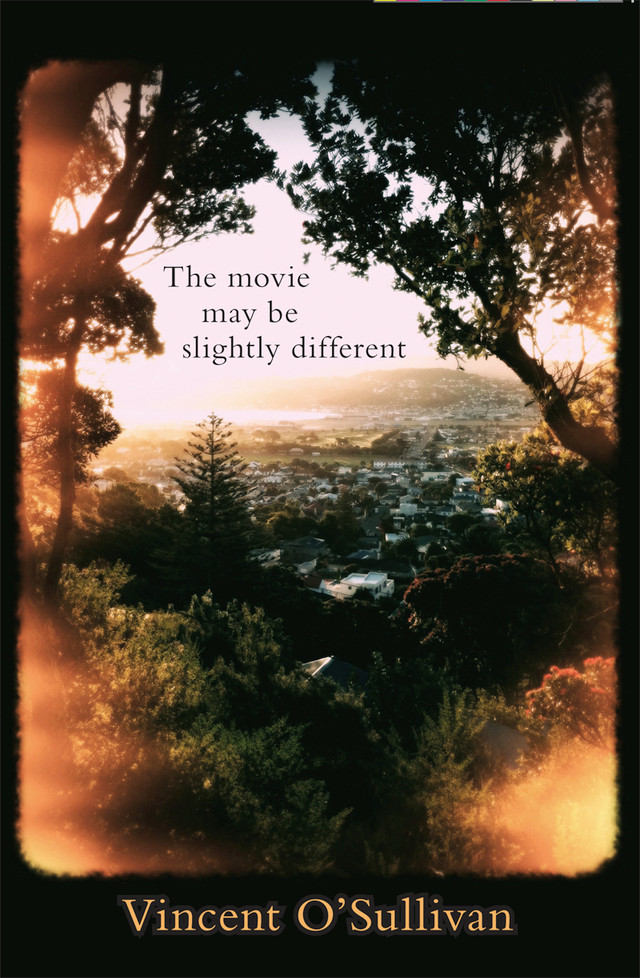
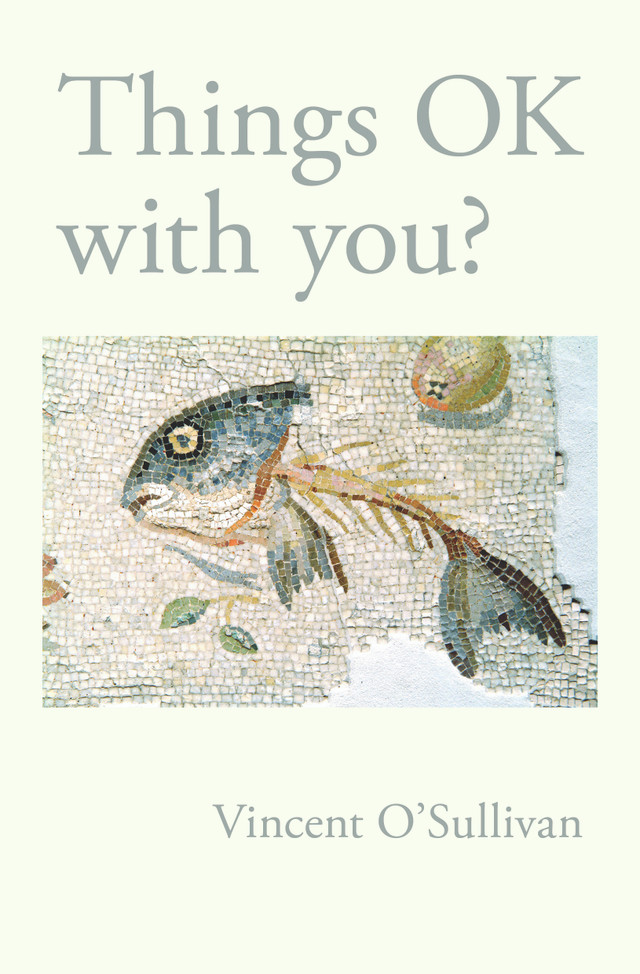

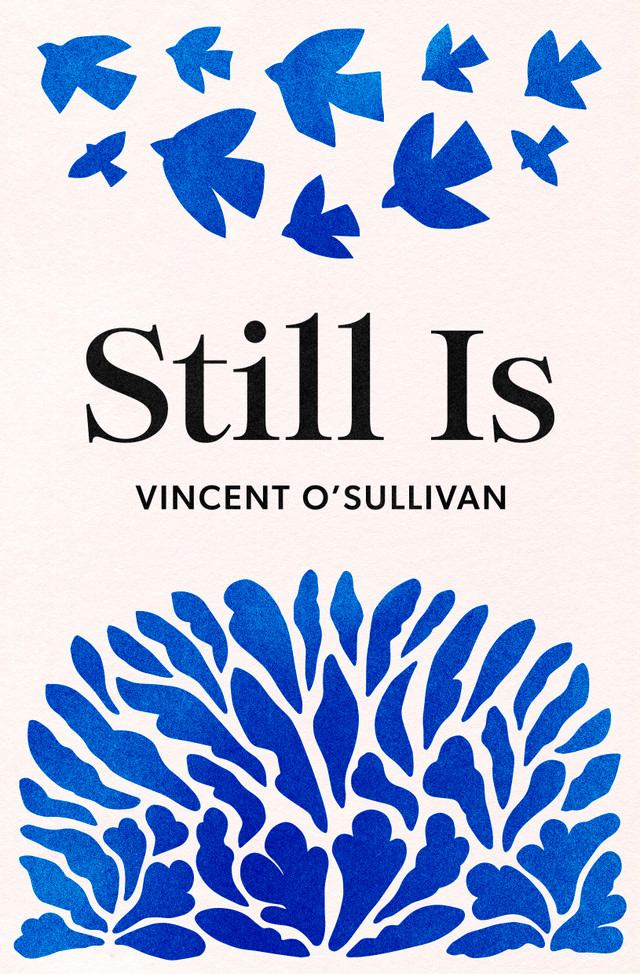


Oh my, the librarian….
Thank you, Paula for all these poems and the choosers and their thoughts.
LikeLike
Pingback: Poetry Shelf newsletter | NZ Poetry Shelf